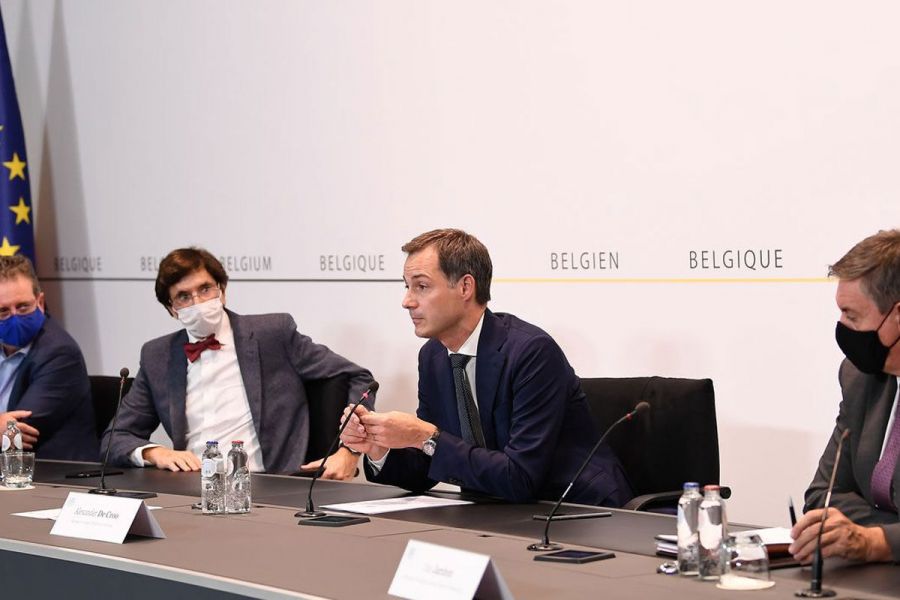Belgium is further tightening its measures to stop the rising coronavirus infections, hospital admissions and deaths in the country, announced Prime Minister Alexander De Croo during a press conference on Friday morning.
"The coronavirus figures keep going up," said De Croo. "Nine out of ten provinces are at alarm level four, and the last province, Limburg, is also going towards figures in the same direction."
"We introduced a number of restrictions last week, with the aim to limit all non-essential contacts as much as possible," he said. "We want to keep the schools open, education is a priority. It is important to be taught in the classroom, for kindergartens, primary and secondary education. Closures are the exception, not the rule."
There will be stricter measures for sports, culture, youth movements, amusement parks and higher education, which are all regional competences, not federal ones.
The measures will take effect immediately and apply for four weeks, until 19 November.
Related News
- Belgium breaks average of 10,000 coronavirus cases per day
- Nine out of ten Belgian provinces reach highest alarm phase
- Belgian hospitals told to postpone non-urgent care
All professional sports games can still take place, but without an audience. All amateur games for everyone over 18-years-old will be prohibited, but outdoor training can continue. Games for youth up to 18 are also still allowed, but only one person per family can attend.
For children under 12, indoor sports can also continue. For everyone over 12, the necessary social distance has to be taken into account, according to Jan Jambon, the Flemish Minister-President.
Swimming pools can remain open for the time being.
In higher education, a maximum of 20% of students is allowed to be present in an auditorium or classroom, with a mandatory face mask. There is an exception for first years, for who the maximum capacity is 50%.
On public transport, the capacity will be optimised to avoid crowding during rush hours.
For the culture and events sector, no more than 200 people are allowed at the same time in theatres, cinemas and concert halls. Exceptions for large halls are no longer possible. Spectators must also be seated at a distance of 1.5 metres from each other. Offering drinks and snacks is no longer allowed.
Amusement parks have to close. The indoor areas of zoos, such as aquariums, have to close as well, the outdoor areas can remain open.
For youth movements, activities for children older than 12 have to take place outdoors, with a face mask. Overnight stays are also forbidden, except during school holidays for children under 12. These overnight stays are also possible for children between 12 and 14, provided they stay at least four nights.
"Once again we have had to make difficult choices, but the impact of the previous measures is not yet visible in the figures," said Federal Health Minister Frank Vandenbroucke. "Everyone in the healthcare sector is tired. All of us together, we must form a dam around the care sector, to ensure that they can continue their work."
"We have asked hospitals to postpone non-urgent surgeries that can be planned, for four weeks. We will evaluate this in two weeks," he said.
Urgent surgeries and treatments, such as chemotherapy, kidney dialysis and rehabilitation will continue, the Minister emphasises. "Please, take care of yourself," Vandenbroucke said. "If you are a cancer patient, for example, keep going to the hospital: the risk of infection is extremely low."
Vandenbroucke stressed the importance of teleworking. Occasionally going into work is fine, "but we really are asking for a maximum commitment to working from home."
"The measures are scheduled to be in force for four weeks, but how long these measures apply does not depend on a ministerial decision, but on our behaviour," said De Croo. "There is no law that can stop this virus. We are the only ones who can stop this, with our own behaviour. We must form one single team of eleven million Belgians."
Maïthé Chini & Jules Johnston
The Brussels Times

